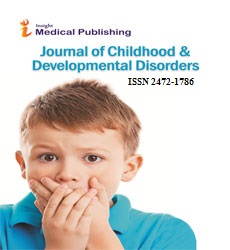Abstract
Quality of Life in Attention Deficit Hyperactivity Disorder: Children's Self-Report in Detail
ADHD is a health problem with implications in academic, psychological, social and motor performance. The perspective of the child's quality of life is currently considered reliable and should be further explored to guide intervention planning. This study aimed to analyze each item of a quality of life questionnaire, comparing Attention Deficit and Hyperactivity Disorder (ADHD) and typically developing children, and verify which specific situations may contribute to their difficulties. Eighty-five children were included, distributed into two groups: 42 children with ADHD and 43 typically developing children. Pediatric Quality of Life Inventory TM 4.0 assessed quality of life. Differences between groups were found on to do chores around the house (p=0.032), to feel afraid or scared (p=0.033), and angry (p=0.040), to get along with other kids (p=0.023), to pay attention in class and to forget things (p=0.000), to keep up schoolwork (p=0.001). In addition, children with ADHD perceived that other kids do not want to be their friends (p=0.038), other kids tease them (p=0.026), they cannot do things that other kids the same age can do (p=0.032). The current study was mild and different from those of other pediatric reports that have included in children with ADHD. Our results reinforce the findings of worse quality of life in this population and add the understanding that this impact reflect a self-perceived of greater difficulty in social relationship with peers, emotional control related to anger and fear, and difficulty in school attendance.
Author(s):
Juliana Cristina Fernandes Bilhar Marques, Jorge Alberto de Oliveira, Juliana Barbosa Goulardins*, Paula Fernanda Augusto and Erasmo Barbante Casella
Abstract | Full-Text | PDF
Share this

Google scholar citation report
Citations : 504
Journal of Childhood & Developmental Disorders received 504 citations as per google scholar report
Abstracted/Indexed in
- Google Scholar
- China National Knowledge Infrastructure (CNKI)
- Directory of Research Journal Indexing (DRJI)
- WorldCat
- Publons
- Geneva Foundation for Medical Education and Research
- Secret Search Engine Labs
- Euro Pub
Open Access Journals
- Aquaculture & Veterinary Science
- Chemistry & Chemical Sciences
- Clinical Sciences
- Engineering
- General Science
- Genetics & Molecular Biology
- Health Care & Nursing
- Immunology & Microbiology
- Materials Science
- Mathematics & Physics
- Medical Sciences
- Neurology & Psychiatry
- Oncology & Cancer Science
- Pharmaceutical Sciences

